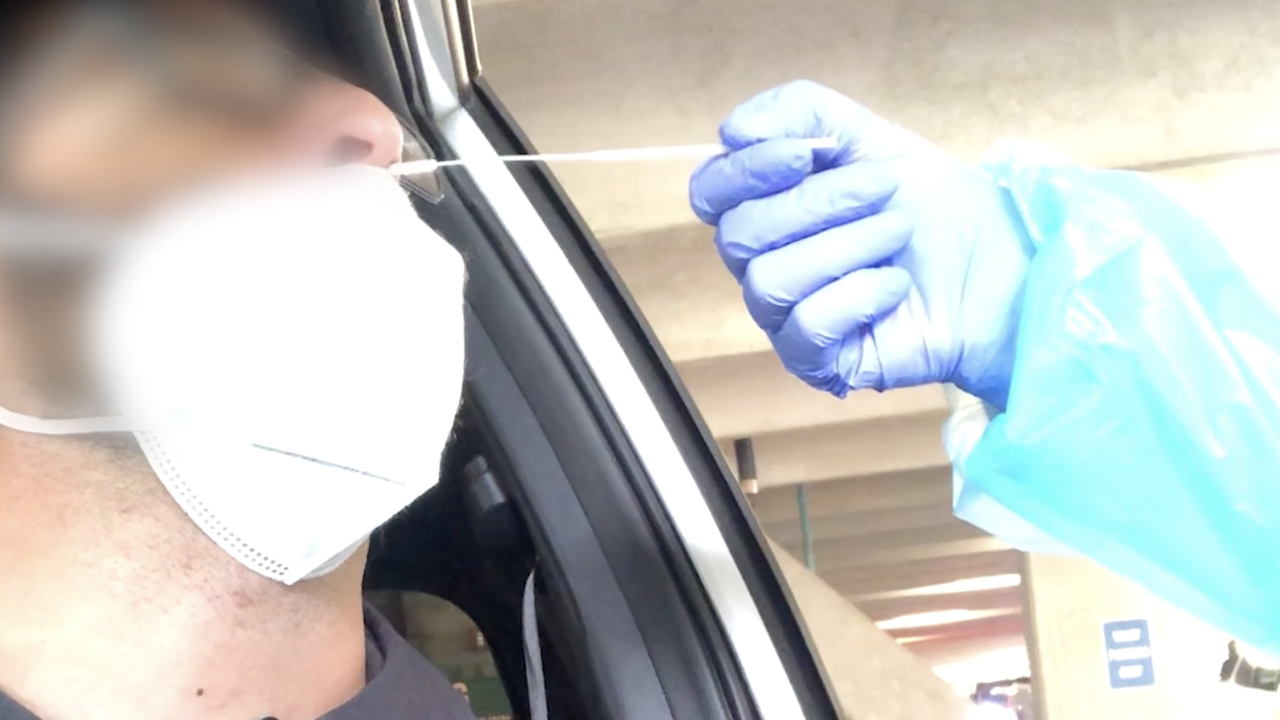(WXYZ) — The U.S. reached record hospitalization rates on Tuesday and as COVID-19 cases continue to surge, Federal Drug Administration acting Commissioner Janet Woodcock has said that most people will end up getting infected
The numbers are discouraging. According to recent data, over 145,000 people are currently in the hospital with COVID-19. That number is almost double what it was just a couple of weeks ago. And it’s also higher than last year’s peak record number, which was 142,000.
Unfortunately, it’s not just adults. Hospitalization rates for children are also at an all-time high — close to 800 kids are being admitted daily.
Now, why are top health officials — like Woodcock and White House Chief Medical Adviser Dr. Anthony Fauci — saying that most Americans will get infected with the coronavirus?
Well, the answer points to the new variant omicron. It has many mutations on the spike protein and it’s pretty good at dodging our immunity. It’s also extremely contagious, so no surprise, it’s spreading like wildfire. And even people who are vaccinated are getting infected, though they do much better overall than people who are not vaccinated.
Right now, omicron is accounting for roughly 98% of new cases. And as of Monday, we had over 1.4 million cases. Personally, I expect there are a lot more cases than that because people who test positive with at-home tests don’t have to report the results.
Yes, there are some people who are fully vaccinated that have been hospitalized, but I don’t want people to think the vaccines are not working. And here’s why: Data shows that people who are vaccinated are less at risk.
For example, a new California study looking at 70,000 patients found that Californians who were vaccinated were somewhere between 64% and 73% less likely to be hospitalized when compared to people who were not vaccinated. Also, Beaumont Health has reported that only 8% of patients hospitalized were fully vaccinated and boosted.
Having said that, how well a person does once infected often comes down to a few factors like:
- Underlying health conditions
- How strong the immune system is
- How old you are — the death rate is higher for elderly people
- Vaccination status — data shows that it’s rare for people who are boosted to be hospitalized
Unfortunately with this virus, no one truly knows how it’s going to affect them or what the illness might lead to. But people can up their protection level by getting vaccinated, then boosted and following pandemic precautions.
Centers for Disease Control and Prevention Director Rochelle Walensky said that the CDC will update its mask information to reflect which masks work best. No details have been released yet. As of now, the CDC asks people to avoid specially labeled surgical N95 respirators. N95 masks filter out 95% of particles in the air. They fit snugly, which can make people feel like it’s a bit harder to breathe in compared to cloth masks.
Now the reason why the CDC has asked people to avoid these masks is because they didn’t want health care personnel to run out of them. But there are now over 737 million N95 masks earmarked for medical workers. Plus, the Biden administration has said it plans to increase the production of N95s.
So, it wouldn’t surprise me if the CDC encourages the public to wear N95 masks because omicron is so infectious. And this type of mask would certainly help protect the wearer. However, the point of updating the mask information is to help people understand what options there are, which masks have good filtration and help people figure out which mask is best for them.
In my opinion, the N95 is the way to go. But I know not everyone is going to feel comfortable with that type of fit. Right now, the main message from the CDC is any mask that feels comfortable and is worn properly, is better than no mask at all. And I completely agree with them.
Additional Coronavirus information and resources:
View a global coronavirus tracker with data from Johns Hopkins University.
See complete coverage on our Coronavirus Continuing Coverage page.




